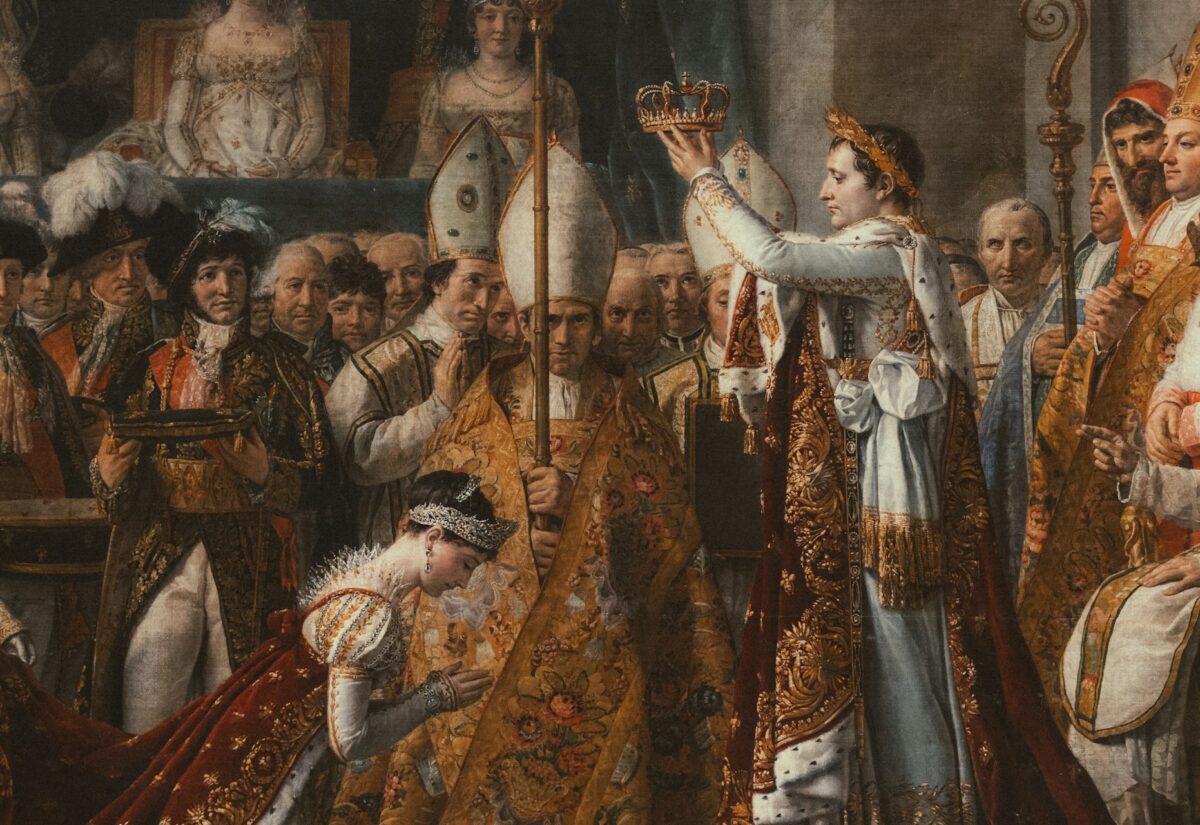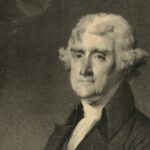 Unsplash/Michael McKay
Unsplash/Michael McKaySome of the most powerful rulers in history didn’t come from noble families or royal bloodlines. They weren’t born into privilege, and they didn’t inherit thrones—they fought, worked, or schemed their way to the top. These are the people who rose from humble beginnings—or sometimes from total obscurity—to hold the reins of empires. Whether through military might, clever alliances, or sheer determination, these rulers remind us that power doesn’t always come from pedigree. Their lives show that ambition, resilience, and timing can matter just as much as lineage. Here are some of the most remarkable stories of rulers who rose from nothing to lead nations—and in some cases, reshape the world.
1. Napoleon Bonaparte
Born on the island of Corsica to a relatively modest noble family, Napoleon’s early life was far from imperial. Corsica had only recently become part of France, and Napoleon grew up speaking Italian and facing deep-seated prejudice from mainland French society. He earned a scholarship to a prestigious military academy in France, where his foreign accent and humble origins set him apart from his aristocratic peers.
Despite this, Napoleon rose rapidly through the military ranks during the French Revolution, a period that upended the old social order and created new opportunities for talented individuals. Through a mix of battlefield brilliance, political cunning, and relentless ambition, he seized control of France and crowned himself Emperor by 1804. Under his rule, France became a dominant force in Europe, and his influence on military strategy, governance, and legal systems is still felt today.
2. Catherine the Great
Catherine was born Sophie of Anhalt-Zerbst, a minor German princess with little power or wealth. She was brought to Russia at the age of 14 to marry the heir to the Russian throne, the future Emperor Peter III. The marriage was unhappy, and Catherine quickly realised that if she wanted to survive and thrive, she would have to master the intricacies of Russian politics.
She immersed herself in Russian language and culture, aligned herself with powerful nobles, and developed a vision for reforming the state. When Peter III alienated the military and aristocracy with his erratic behaviour, Catherine took her chance. In 1762, she led a successful coup and took the throne. As empress, she expanded Russian territory, championed Enlightenment ideas, and transformed Russia into a major European power—all despite having started life on the political margins.
3. Genghis Khan
Born as Temujin around 1162, Genghis Khan experienced a childhood marked by loss and betrayal. After his father’s poisoning, his family was cast out by their tribe and forced to live in poverty, often scavenging for food. He was captured by rivals, escaped captivity, and began building a loyal following by forging alliances and demonstrating his strategic brilliance.
Over time, Temujin united the often-warring Mongol tribes under his leadership. Renamed Genghis Khan in 1206, he led a campaign of conquest that stretched across Asia and into Europe. By the time of his death, he had established the largest contiguous land empire in history. His rise from orphaned outcast to world-conquering ruler is one of history’s most extraordinary stories.
4. Emperor Justinian I
Justinian was born around 482 CE to a peasant family in the Balkans. His uncle, Justin, had joined the imperial guard in Constantinople and eventually became emperor. Justinian, adopted by his uncle and given a solid education, became a trusted advisor and heir.
As emperor, Justinian proved to be a visionary leader. He sought to restore the Roman Empire’s former glory, launching military campaigns to reclaim lost territories and commissioning a comprehensive legal code that would influence European law for centuries. He also presided over massive architectural projects, including the iconic Hagia Sophia in Constantinople. From rural obscurity, Justinian rose to reshape an empire.
5. Simón Bolívar
While Bolívar was born into a privileged Creole family in Venezuela, he wasn’t part of an established monarchy or ruling elite. Orphaned as a child, he was sent to Europe for education, where he was exposed to revolutionary ideas and Enlightenment thinking.
Bolívar returned to South America committed to freeing his homeland from Spanish rule. Over the course of brutal and grueling campaigns, he led liberation efforts across Venezuela, Colombia, Ecuador, Peru, and Bolivia. He helped create the short-lived republic of Gran Colombia and earned the nickname “El Libertador.” His rise was not about inheritance—it was about vision, resilience, and sheer force of will.
6. Haile Selassie I
Born Tafari Makonnen in 1892, Haile Selassie came from a noble but not royal Ethiopian family. He served in the court of Emperor Menelik II and rose through political ranks thanks to his intelligence, diplomacy, and loyalty. After Menelik’s death, Tafari navigated the internal politics of the Ethiopian Empire to become crown prince and eventually emperor.
As emperor, he modernised Ethiopia, founded schools and infrastructure, and became a symbol of African independence. He famously appealed to the League of Nations during Italy’s invasion of Ethiopia in 1935 and later played a key role in the establishment of the Organisation of African Unity. His ascent from provincial politics to global statesmanship was anything but guaranteed.
7. Joseph Stalin
Born in 1878 in Georgia to a poor family, Joseph Stalin’s childhood was dominated by poverty, violence, and instability. He studied in a seminary but was expelled, possibly for his involvement in revolutionary activities. He joined the Bolshevik movement and was repeatedly arrested and exiled.
After the 1917 Russian Revolution, Stalin climbed the ranks of the Communist Party through a mix of cunning, ruthlessness, and opportunism. He eventually consolidated power after Lenin’s death, becoming the de facto ruler of the Soviet Union. Under his rule, the USSR underwent rapid industrialisation and emerged as a global superpower—though at immense human cost.
8. Queen Elizabeth I
Elizabeth was born into royalty but lived much of her early life under threat. After her mother, Anne Boleyn, was executed and her father, Henry VIII, remarried multiple times, Elizabeth was declared illegitimate. During the reign of her half-sister Mary I, Elizabeth spent time imprisoned in the Tower of London under suspicion of treason.
Despite the dangers, she navigated court politics with care and intelligence. When she became queen in 1558, she inherited a divided, debt-ridden kingdom. Over the next 45 years, she stabilised the nation, encouraged the arts, and oversaw the defeat of the Spanish Armada. Her reign is remembered as a high point in English history.
9. Abraham Lincoln
Abraham Lincoln was born in 1809 in a log cabin in Kentucky. His parents were poor, and his formal education lasted less than a year. But Lincoln was a voracious reader and self-taught himself law, eventually entering politics.
He served in the Illinois state legislature and the U.S. Congress before emerging as a national leader during the divisive years leading up to the Civil War. As the 16th President of the United States, Lincoln preserved the Union and abolished slavery. He was assassinated in 1865, but his rise from poverty to presidency remains one of the most iconic stories in American history.
10. Toussaint Louverture
Born into slavery in 1743 in the French colony of Saint-Domingue (now Haiti), Louverture gained his freedom in his thirties. He was largely self-taught, spoke multiple languages, and studied military strategy through books and observation.
When the Haitian Revolution began in 1791, Louverture emerged as a key leader. He organised former slaves into a disciplined army and outmanoeuvred the armies of France, Britain, and Spain. Though he was captured and died in a French prison, his leadership paved the way for Haiti to become the first Black republic and the first nation to abolish slavery permanently.
These leaders didn’t start with wealth, power, or royal favour. They came from broken homes, forgotten provinces, war-torn frontiers, and grinding poverty. They made their way to the top through resilience, intelligence, timing—and in many cases, raw ambition. Their stories aren’t just about personal triumph—they reflect the shifting tides of history and remind us that greatness can emerge from the most unlikely places. They remain powerful examples of what can be achieved when someone refuses to be defined by their origins.



